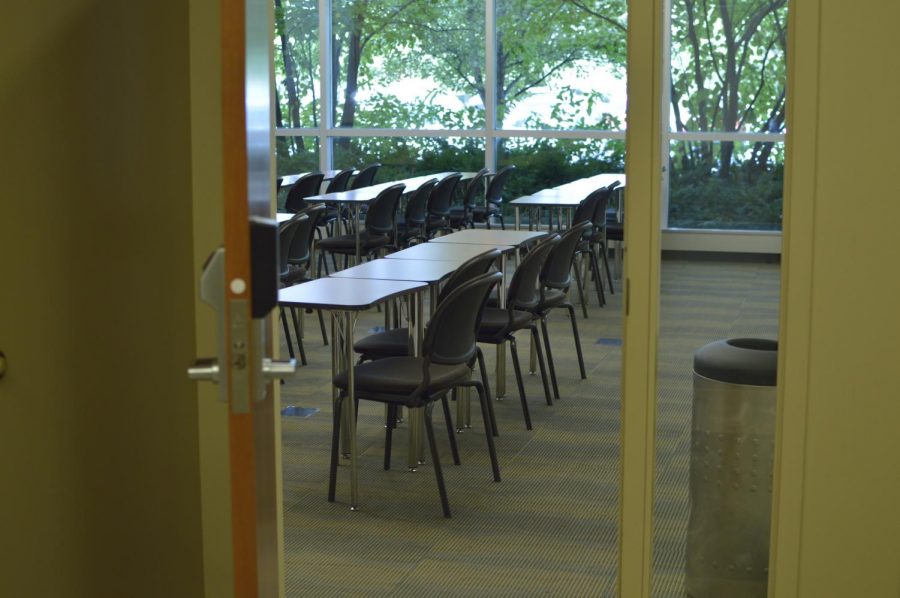A 4 day school week is selfish, not sensible
August 30, 2018
It is no secret that many public schools in America are severely underfunded. Now, more and more schools going to extreme measures to save a quick buck, putting the success of the students on the backburner.
Around 560 districts in the nation have decided on a four-day school week, according to the National Conference of State Legislatures. The most recent to decide on the shortened school week was district 27J of the Denver metropolitan area because of underfunding issues. Instead of having a fifth day, students will be in school longer Tuesday through Friday.
Many schools over the past few months have sought ways to cut corners, as it is well known that public schools in America do not always receive adequate funding. Schools are taking drastic measures to save money and keep teachers, and they hope removing a whole school day from the week is the answer to the problem at hand.
When I was a kid, a four-day school week sounded like a dream. As I grow older and plan to pursue a career in education, this reality does not feel as exciting as it once did. Instead, it creates a narrative that school districts will put the needs of the children last while doing whatever it takes to save money.
Schools plan to save money on bus routes and transportation. Shorter weeks also save money by cutting back on hourly wages to employees like custodians or cafeteria staff. Savings from the shortened school week are minimal, though, with schools hoping to save just 2 to 3 percent of the overall school funding.
While students are not in school for the fifth day, the school is still open for full-time employees to conduct their work. Teachers can use the free day to plan, grade and attend meetings. So while the school is free of students that day, they are not actually saving any of the teaching cost it takes to keep the school open. The message appears to be what these schools really can’t afford is the only reason they exist – students.
Many of the schools that implemented the four-day school week claim teachers and other faculty prefer the shortened week, enjoying the extra time to get their work done. Parents, on the other hand, have strong opposing opinions.
These students now have a three-day weekend, despite most families working a full, five-day week. Parents must now spend more money on childcare, which can place a large burden on those families. The average cost for one day of childcare is anywhere from $30 to $40, according to TIME, which can add up quickly throughout the school year. For low-income families, affording this new necessity can be next to impossible.
According to NPR, 30.3 million students receive free or reduced lunches. For some students, the meals they receive at school are the only meals they will get that day. While there are select perks to come from a shortened school week, such as decreased absences or better-rested students, the decision adds strain to low-income, working families. No perk is worth a child going hungry when it could be avoided.
The longer days may also hurt younger students who do not have the stamina to concentrate for a longer school day. Young children also have a natural inability to sit still, and expecting them to sit in their desks longer than they already do goes against their physiological nature. These young students are more prone to lack the focus needed to retain information, harming them in the long run.
Parents also worry their children will no longer have time to fully participate in extracurricular activities because of a longer school day. The ability to partake in sports and clubs allows students to gain skills they otherwise would not obtain.
The long-term academic impacts of this schedule have yet to be investigated. Some studies claim academic performance may slightly increase for a time after the shorter week is implemented. That improvement is short lived. Declines in performance soon follow.. Other studies state there is no change at all in student performance. Before potentially putting the student’s academic growth at risk, these implications should be studied and analyzed before implementation.
Despite any perks to a shortened week, the decision to remove one whole school day from the week is not a decision made with the students or their families in mind.There is a new price to pay with burdens to their already difficult lives. Short school weeks save money for the people on top without truly addressing the issue at large. The ones paying the price will be the students by giving up their future success.
We take away their recess. We restrict their access to up-to-date, adequate textbooks. Now, we are taking away classroom time. What more can we possibly steal from our students?




















